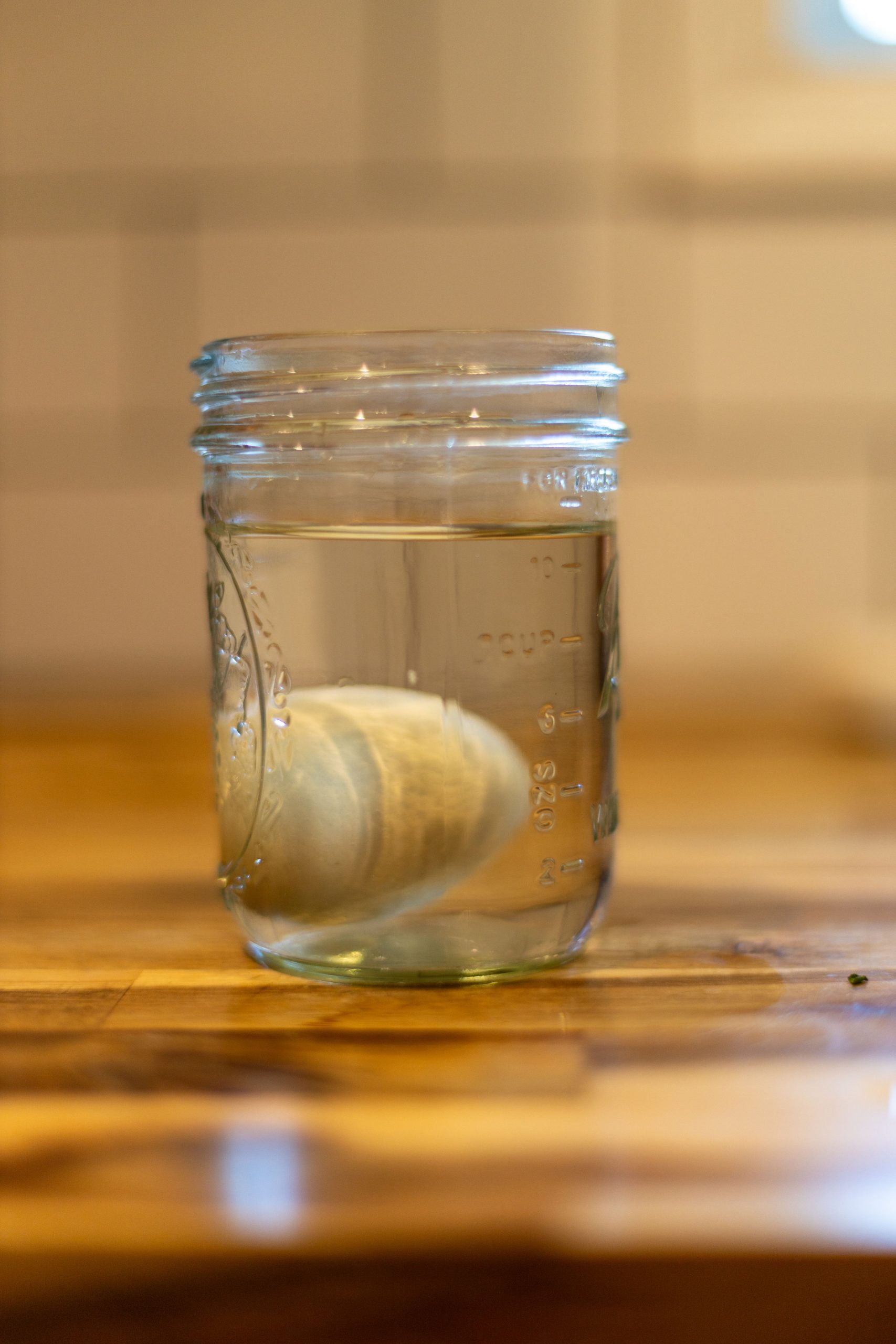The first step in successful egg keeping is daily egg collection. If you can, try to collect eggs everyday or every few days at least, to ensure freshness. During hot summer months, fertile eggs can actually begin to incubate if the interior egg temperature reaches 90 degrees F.
Fresh eggs are best when kept at room temperature, and here is why: the bloom.
When an egg is laid, a protective, bacteria resistant film coats the egg. This is a translucent covering that dries soon after being laid. This is called the “bloom.” This “bloom,” also referred to as the “cuticle,” provides a protective layer against invading bacteria. Eggshells are porous, and depending on temperature, pores can expand and tighten, sometimes allowing bacteria inside the egg. By not washing the egg and keeping on the bloom, there is no need at all the refrigerate the eggs. They will be better for baking and tastier. Eggs left inside a fridge,without a bloom, can extract other food tastes from the fridge!
With farm fresh eggs, your best method of storage is bringing them straight from outside to the kitchen counter, WITHOUT washing them.
Eggs bound for grocery stores must be washed and totally clean, mainly to make the eggs look presentable. Since they are washed, the eggs must be refrigerated.
IF an egg is so dirty, that you feel you MUST wash it, REFRIGERATE it afterwards.
Unwashed, fresh eggs can stay on the kitchen counter for about 2 weeks. If washed and refrigerated, eggs can keep for 3 months or more!
Tip: Wash your eggs only before eating. When washing, use warm water as to not coax the eggshell pores into opening. Then, dry the eggshell well with a paper towel before cracking the egg.
Many of you may get more eggs than you need and opt to sell your extras. Make sure you know your local laws for selling eggs, just to ensure sure you aren’t breaking any laws. When I give away eggs, I leave them unwashed and let my friends know they are counter safe for 2 -3 weeks. (Employ the water test to ensure your eggs are fresh before eating).
To test the freshness of an egg, many people use the water glass method. You simply need a glass cup, about half full of water. Gently drop in the eggs, one at a time, to gauge freshness. One of three things will happen:
- Egg sinks- it is fresh!
- Egg sinks- but stands on its side- medium fresh, you can eat it.
- Egg floats- just toss it in the trash!

Be sure to rotate out your egg pantry by always eating the older eggs first. I also like to crack any egg I plan on cooking with into a bowl separate from the other ingredients, ensuring it is just right!
Tip: If your eggs keep coming out messy from your hens, it may be time to worm them.
Egg storage is very simple. Collect them, counter them, and wash before using! I hope you are getting lots of fresh eggs this summer!